
Find Help
More Items From Ergsy search
-

Is it necessary to complete a final tax return for the deceased?
Relevance: 100%
-
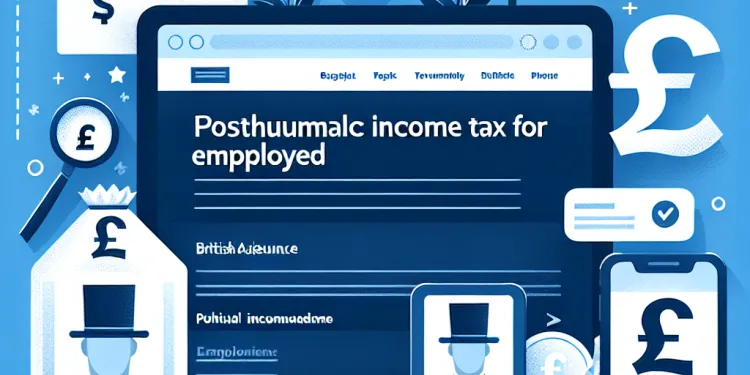
What happens to a deceased’s Income Tax if they were employed?
Relevance: 67%
-

What should I do if I need help managing the tax affairs of the deceased?
Relevance: 62%
-

Can the executor use the deceased's assets to pay tax debts?
Relevance: 54%
-

Who is responsible for paying the deceased’s tax debts?
Relevance: 48%
-

What taxes need to be paid from the deceased’s estate?
Relevance: 46%
-
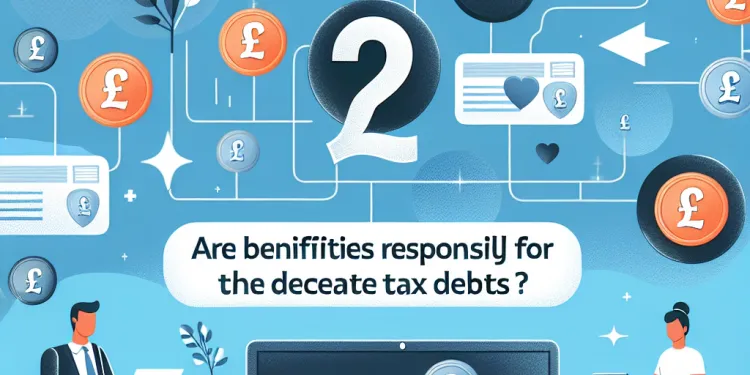
Are beneficiaries responsible for the deceased's tax debts?
Relevance: 42%
-

What is the role of an executor in handling tax debts?
Relevance: 42%
-

What is an online tax return?
Relevance: 42%
-

What happens after I file my tax return online?
Relevance: 41%
-

Can I amend an online tax return?
Relevance: 40%
-

What is a Self Assessment tax return?
Relevance: 40%
-
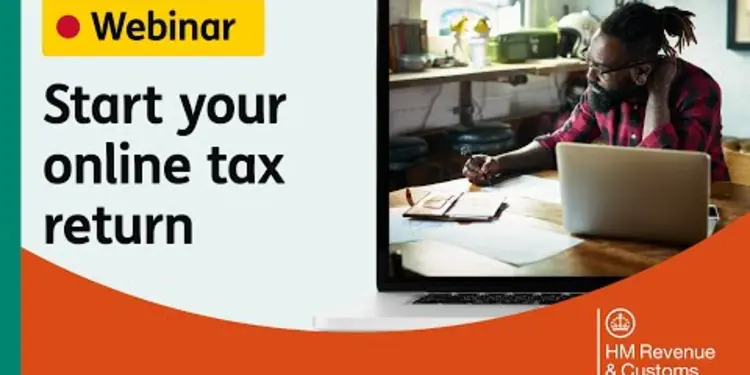
Starting your online tax return
Relevance: 40%
-
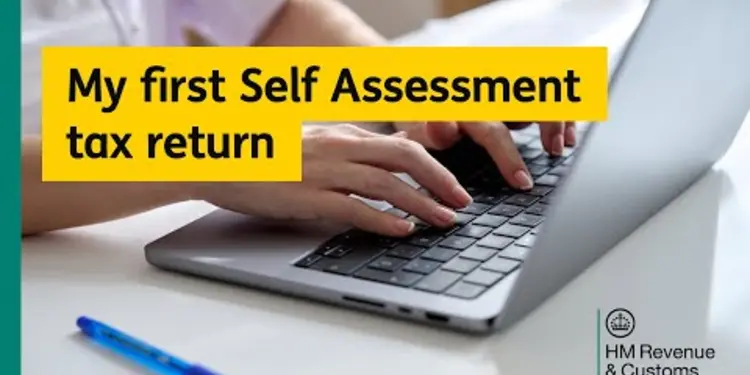
My first Self Assessment tax return
Relevance: 39%
-

What if I make a mistake on my tax return?
Relevance: 39%
-

What Happens to Tax Debt After Death? (UK Laws)
Relevance: 39%
-

Can I amend my tax return after submitting it?
Relevance: 39%
-

What should I do if I made a mistake on my tax return?
Relevance: 38%
-

How do I complete my Self Assessment tax return?
Relevance: 38%
-

Do I need to print and mail my online tax return?
Relevance: 38%
-

Do I need to declare my ISA income on my tax return?
Relevance: 37%
-
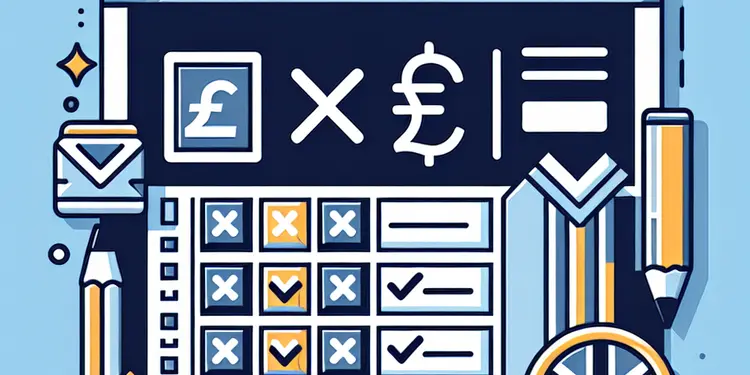
How can I check the status of my online tax return?
Relevance: 37%
-

Who needs to file a Self Assessment tax return?
Relevance: 37%
-

What information do I need to complete my Self Assessment tax return?
Relevance: 37%
-
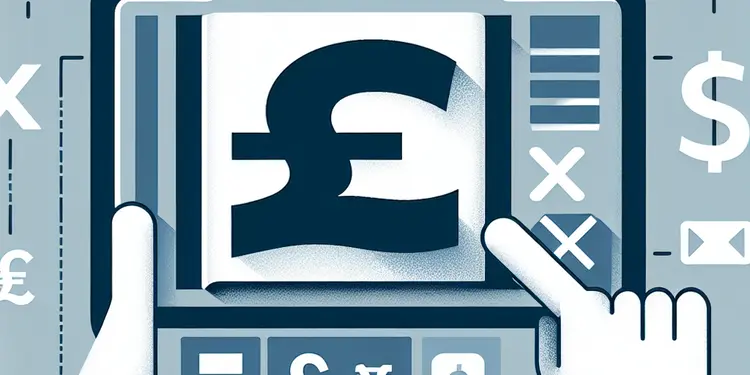
When is the deadline for submitting my Self Assessment tax return?
Relevance: 37%
-

Do I need an accountant to file a Self Assessment tax return?
Relevance: 37%
-

Do I need to report the Winter Fuel Payment on my tax return?
Relevance: 35%
-

How do I notify HMRC of someone’s death?
Relevance: 32%
-
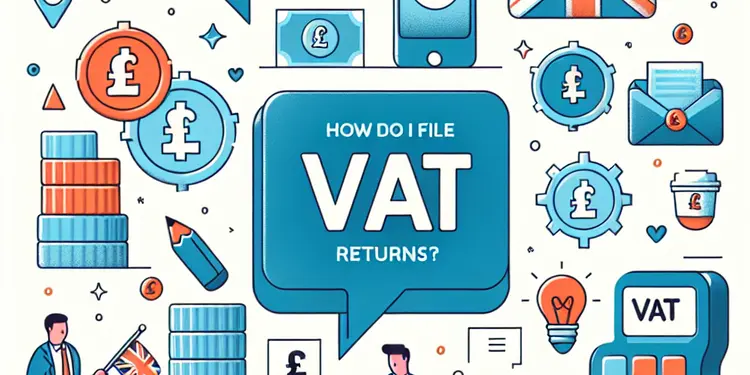
How do I file VAT returns?
Relevance: 31%
-
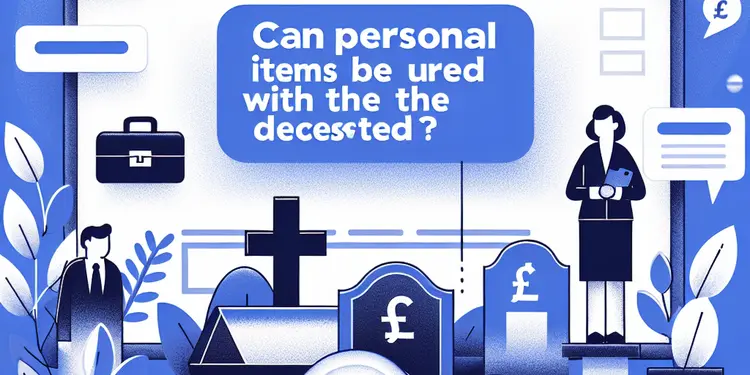
Can personal items be buried with the deceased?
Relevance: 31%
-

When is inheritance tax due?
Relevance: 31%
-

What is input tax and output tax?
Relevance: 30%
-

How is Inheritance Tax (IHT) dealt with after death?
Relevance: 29%
-

How do I value the estate for Inheritance Tax purposes?
Relevance: 28%
-

When is the deadline to file taxes online?
Relevance: 28%
-

What assets are subject to inheritance tax?
Relevance: 28%
-
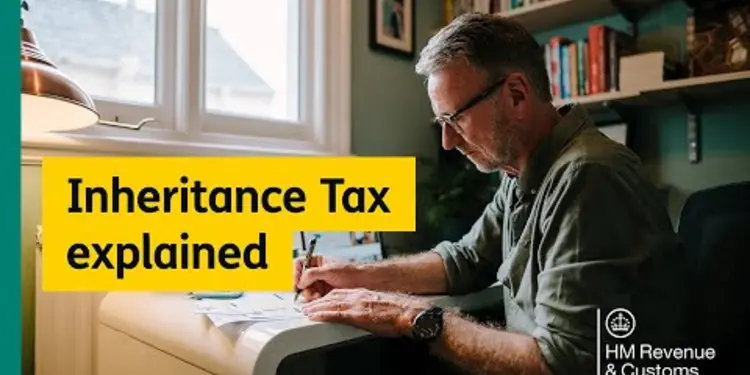
What is Inheritance Tax?
Relevance: 27%
-

How is the Inheritance Tax bill calculated?
Relevance: 27%
-

Do I need to inform HMRC about the death?
Relevance: 27%
-

How are ashes returned to the family?
Relevance: 27%
Introduction
When a person in the UK passes away, their financial matters must be carefully managed. Among these responsibilities is the completion of a final tax return, a crucial step in wrapping up the deceased person's affairs. This task often falls to the executors or personal representatives of the estate. Understanding whether this is necessary and what it entails can help ensure compliance with UK tax regulations.
What is a Final Tax Return?
A final tax return is a document submitted to HM Revenue and Customs (HMRC) on behalf of the deceased. It accounts for any income received up until the date of death and addresses any taxes that may still be owed. This process is essential even if the deceased person had minimal income or assets, as it formally closes their tax records with HMRC.
Is It Necessary?
In most cases, it is necessary to complete a final tax return for the deceased. This requirement ensures any outstanding tax obligations are resolved, and if due, refunds are issued to the estate. Failing to submit a return could result in complications or penalties, as it is the responsibility of the executors to ensure all legal and financial affairs are settled properly.
However, there are situations where a final tax return may not be needed. For instance, if the deceased's income was solely from the state pension and did not exceed the personal allowance, a tax return might not be required. Nevertheless, it's always advisable to contact HMRC or consult with a tax professional to confirm the necessity based on specific circumstances.
Steps to Complete a Final Tax Return
The process begins with gathering all relevant documents detailing the deceased's income, such as P60s, bank statements, and dividend vouchers. Executors should also check for any outstanding tax returns from previous years that might affect the final calculation. Once all the information is collected, the standard Self Assessment tax return process applies.
The tax year typically runs from 6 April to 5 April, and the final tax return should cover income up to the date of death. The deadline for filing and paying any tax owed is usually the later of 31 January following the end of the tax year or 12 months after the date of death.
Conclusion
Completing a final tax return for the deceased is often a necessary responsibility for those handling the estate. It ensures that all tax matters are resolved and prevents potential legal or financial issues. Executors should diligently gather all relevant information and seek advice from HMRC or tax professionals when needed. This diligence fulfills a legal responsibility and honors the deceased's financial legacy.
Introduction
When someone in the UK dies, their money and taxes need to be sorted out. One important job is to finish their last tax return. This is often done by the people managing the person’s money and belongings, called executors. Knowing if you need to do this and how to do it helps follow UK tax rules.
What is a Final Tax Return?
A final tax return is a form sent to HM Revenue and Customs (HMRC). It shows any money the person earned until they died and any tax they still owe. This is needed even if the person did not make much money. It officially finishes their tax records with HMRC.
Is It Necessary?
Most of the time, you need to do a final tax return for the person who has died. This makes sure any tax they owe gets paid or any refunds they should get are returned to their estate. If you don't do this, there could be problems or fines because it’s the executor's job to settle all money matters.
But sometimes, you might not need to do a final tax return. For example, if their only money was from the state pension and it was less than the tax-free allowance, a return might not be needed. It’s a good idea to ask HMRC or a tax expert to be sure.
Steps to Complete a Final Tax Return
First, collect all papers showing the person’s income, like P60s, bank slips, and dividend notes. Check if there are any old tax returns that weren’t done because they might change the last tax amount. After gathering everything, fill out the Self Assessment form as usual.
The tax year goes from 6 April to 5 April, and the final tax return covers income until they died. You must send the tax return and pay any tax owed by 31 January after the tax year ends or 12 months after the person died, whichever is later.
Conclusion
Doing a final tax return for the person who died is usually needed. It fixes all tax matters and avoids money problems later. Executors should collect all the needed information and ask HMRC or tax experts for help if necessary. Doing this honors the financial work the person did in life.
Frequently Asked Questions
What is a final tax return for the deceased?
A final tax return for the deceased is the tax return filed for the year of a person's death, which accounts for their income and deductions up to the date of their passing.
Is it necessary to file a final tax return for someone who has died?
Yes, it is generally necessary to file a final tax return for a deceased person if they had income in the year they passed away.
Who is responsible for filing the final tax return for the deceased?
Usually, the executor of the deceased's estate is responsible for filing the final tax return.
What happens if the final tax return for the deceased is not filed?
Failure to file a final tax return can result in penalties and interest on any unpaid taxes, and the IRS may contact the executor or heirs.
Can the final tax return be filed electronically?
Yes, in many cases, the final tax return for a deceased person can be filed electronically, depending on the circumstances and the tax software used.
What documents are needed to file a final tax return for the deceased?
Documents needed include the deceased's income statements (W-2s, 1099s), records of deductible expenses, and previous tax returns.
Is there a specific form for the final tax return of the deceased?
The same tax forms used by living individuals (such as Form 1040) are used, but they are marked 'deceased' and include details of the executor.
When is the final tax return for the deceased due?
The final tax return is generally due by the tax filing deadline following the year of the person's death, typically April 15th.
Can a surviving spouse file a joint return with the deceased?
Yes, a surviving spouse can usually file a joint return for the year their spouse died, assuming they do not remarry within that year.
Are there any tax breaks available on the final tax return for the deceased?
The deceased may qualify for tax exemptions and deductions applicable during their lifetime, such as personal exemptions and itemized deductions.
How do you notify the IRS of a taxpayer's death?
The IRS should be notified of the taxpayer's death through the filing of their final return, which can include a copy of the death certificate if necessary.
What address should be used on the final tax return for the deceased?
The address of the executor or the estate should be used on the final tax return.
If a refund is due, how is it claimed on behalf of the deceased?
Form 1310 may need to be filed to claim a refund due to a deceased taxpayer.
Can unpaid taxes from the deceased’s lifetime be settled with their estate?
Yes, any outstanding taxes owed by the deceased should be paid out of their estate before any distributions to heirs.
Is it necessary to report the income of an estate separately from the final tax return?
Yes, if the estate generates income after the person's death, this may require a separate estate tax return (Form 1041).
What if the deceased was self-employed?
For a self-employed individual, the executor must ensure all income and deductible business expenses are reported on the final return.
Can you get an extension for filing the final tax return for the deceased?
Yes, an extension can be requested in the same manner as for living taxpayers, using Form 4868.
What should be written on the final tax return to indicate it's for a deceased person?
The word 'Deceased' should be written on the return, along with the date of death after the decedent's name.
How do state tax returns work for a deceased person?
State tax requirements vary, so the executor should check with the state revenue department for specific rules on filing a final state return.
What if the deceased did not have enough income to file a return?
If the deceased’s income was below the threshold requiring a return, it may not be necessary to file; however, it might still be beneficial if a refund is available.
What is a final tax return for someone who has died?
When someone dies, their family needs to do one last tax return for them. This is called a final tax return.
The final tax return helps the government know about the money that the person who died made or spent before they died.
Here is how you can make it easier:
- Ask someone to help you, like a family member or a tax expert.
- Use simple online tools or apps that explain tax returns in easy words.
- Break the task into small steps so it is not too hard.
A final tax return for someone who has died is the tax form sent in for the year they die. It shows the money they made and the money they spent before they passed away.
Do you need to fill out a last tax form for someone who died?
When someone dies, we usually need to fill out a final tax form for them if they made money that year.
Use tools like large text or audio readers and ask someone for help if you need it.
Who has to do the last tax return for someone who died?
When someone dies, there is a person called an "executor" who helps take care of their things. This person also needs to fill out the last tax form for the person who died.
What if we don't send the last tax return for someone who died?
If you don't send in a final tax form, you might have to pay extra money. This money can be a penalty or interest if you owe taxes. The IRS might talk to the person in charge of the will or the family members.
Can you send the last tax form online?
Yes, you can often file the last tax forms online for someone who has died. It depends on the situation and the tax program you use.
What papers do you need to do the last tax return for someone who has died?
You need some papers to help. These papers are:
- The papers that show how much money the person who passed away earned. These are called W-2s or 1099s.
- The papers that show things you can take off from taxes, like expenses that are allowed to be deducted.
- Old tax papers from before.
To make it easier, you can use a helper tool like a checklist or ask someone to help you.
Do you use a special form for a person's last tax return after they have died?
When a person has died, we use the same tax forms, like Form 1040, that living people use. We write 'deceased' on the form and add the name of the person in charge of the person's things. This person is called the 'executor'.
When do you need to send the last tax form for someone who has died?
The person’s last tax return usually needs to be done by April 15th the year after they die.
Can a husband or wife file taxes together after one has died?
If your husband or wife has died, you might wonder if you can still file taxes together. The answer is sometimes, yes.
You can file together in the year your husband or wife died. This means you put both your names on the tax papers, just like when they were alive.
Filing together can sometimes save money on taxes. It can help to have a friend or family member with you for support. You might also use tax software or talk to a tax helper to make it easier.
Yes, if your husband or wife dies, you can usually do a joint tax return for that year. This is true if you do not get married again that year.
Can you get tax help when doing the last tax return for someone who has died?
When someone has died, there might be special tax rules that can help with money. These rules can make taxes less. They could use rules that were allowed when they were alive, like paying less tax because they had special reasons or costs.
How do you tell the IRS about someone who has died?
You need to tell the IRS when someone passes away.
You can do this by sending in their last tax return. You might need to include a copy of the death certificate. A family member or an accountant can help with this if needed.
What address do we write on the last tax form for someone who has died?
Write the address of the person in charge of the will or the estate on the last tax form.
If someone who died is owed money, how do you ask for it back?
You might need to fill out Form 1310 if someone who passed away is getting a tax refund.
Can the money owed for taxes by someone who has passed away be paid using their belongings and money?
If someone has died and they owe taxes, the taxes can be paid from the things and money they left behind.
Here are some ways to handle this:
- Check if there is enough money and belongings to pay the taxes.
- Work with a person called an 'executor' who can help with handling the person's affairs.
- Use tools like a calculator to add up how much is owed and what is available to pay it.
- Ask someone you trust to help you understand all the steps.
Yes, if someone dies and owes taxes, those taxes should be paid from the money or things they left behind before giving anything to family or friends.
Do you need to tell the tax office about the money from the estate in a different way than the last tax form?
Yes, if money is made from the estate after the person dies, a special tax form might be needed. This is called Form 1041.
What if the person who died worked for themselves?
If someone works for themselves, the person in charge when they pass away must make sure all money made and business costs are told to the tax people in the last tax report.
Can you have more time to do a tax return for someone who has died?
Sometimes, you might need extra time to finish the tax papers when someone has died. You can ask for more time if you can’t finish it by the deadline.
What to do:
- Ask the tax office if you can have more time.
- Tell them why you need more time.
Helpful tip: You can use a calendar or mobile reminders to manage your dates and tasks.
Yes, you can ask for more time using Form 4868, just like for people who are alive and paying taxes.
What do you write on the last tax form for someone who has died?
When someone has died, and you need to fill out their last tax form, write this:
- Write "Deceased" at the top of the form
- Add the date the person died
If you need help, ask a grown-up or use a tax helper tool online.
Write the word 'Deceased' on the return. Add the date of death next to the person's name who died.
What happens to state taxes when someone dies?
When a person dies, they might still need to pay taxes. These are the steps for handling their state taxes:
- Find someone to help: This person is called an "executor" or "administrator." They take care of the person’s things after they die.
- Gather papers: Look for important papers like tax forms, and records of money and things they owned.
- File a tax return: The helper needs to fill out forms about the person's money and send them to the tax office, just like the person did when they were alive.
Tip: If this feels hard, ask for help! Try calling a tax expert or using a computer program that helps with taxes.
Each state has different tax rules. The person in charge should ask the state tax office what they need to do to finish the state tax return.
What if the person who died didn't make enough money to do taxes?
If the person who died didn't make a lot of money, you might not have to fill out a tax form. But, it could still be a good idea to do it if you can get some money back.
Useful Links
Have you found an error, or do you have a link or some information you would like to share? Please let us know using the form below.
-->
This website offers general information and is not a substitute for professional advice.
Always seek guidance from qualified professionals.
If you have any medical concerns or need urgent help, contact a healthcare professional or emergency services immediately.
Some of this content was generated with AI assistance. We’ve done our best to keep it accurate, helpful, and human-friendly.
- Ergsy carfully checks the information in the videos we provide here.
- Videos shown by Youtube after a video has completed, have NOT been reviewed by ERGSY.
- To view, click the arrow in centre of video.
- Most of the videos you find here will have subtitles and/or closed captions available.
- You may need to turn these on, and choose your preferred language.
- Go to the video you'd like to watch.
- If closed captions (CC) are available, settings will be visible on the bottom right of the video player.
- To turn on Captions, click settings .
- To turn off Captions, click settings again.
More Items From Ergsy search
-

Is it necessary to complete a final tax return for the deceased?
Relevance: 100%
-

What happens to a deceased’s Income Tax if they were employed?
Relevance: 67%
-

What should I do if I need help managing the tax affairs of the deceased?
Relevance: 62%
-

Can the executor use the deceased's assets to pay tax debts?
Relevance: 54%
-

Who is responsible for paying the deceased’s tax debts?
Relevance: 48%
-

What taxes need to be paid from the deceased’s estate?
Relevance: 46%
-

Are beneficiaries responsible for the deceased's tax debts?
Relevance: 42%
-

What is the role of an executor in handling tax debts?
Relevance: 42%
-

What is an online tax return?
Relevance: 42%
-

What happens after I file my tax return online?
Relevance: 41%
-

Can I amend an online tax return?
Relevance: 40%
-

What is a Self Assessment tax return?
Relevance: 40%
-

Starting your online tax return
Relevance: 40%
-

My first Self Assessment tax return
Relevance: 39%
-

What if I make a mistake on my tax return?
Relevance: 39%
-

What Happens to Tax Debt After Death? (UK Laws)
Relevance: 39%
-

Can I amend my tax return after submitting it?
Relevance: 39%
-

What should I do if I made a mistake on my tax return?
Relevance: 38%
-

How do I complete my Self Assessment tax return?
Relevance: 38%
-

Do I need to print and mail my online tax return?
Relevance: 38%
-

Do I need to declare my ISA income on my tax return?
Relevance: 37%
-

How can I check the status of my online tax return?
Relevance: 37%
-

Who needs to file a Self Assessment tax return?
Relevance: 37%
-

What information do I need to complete my Self Assessment tax return?
Relevance: 37%
-

When is the deadline for submitting my Self Assessment tax return?
Relevance: 37%
-

Do I need an accountant to file a Self Assessment tax return?
Relevance: 37%
-

Do I need to report the Winter Fuel Payment on my tax return?
Relevance: 35%
-

How do I notify HMRC of someone’s death?
Relevance: 32%
-

How do I file VAT returns?
Relevance: 31%
-

Can personal items be buried with the deceased?
Relevance: 31%
-

When is inheritance tax due?
Relevance: 31%
-

What is input tax and output tax?
Relevance: 30%
-

How is Inheritance Tax (IHT) dealt with after death?
Relevance: 29%
-

How do I value the estate for Inheritance Tax purposes?
Relevance: 28%
-

When is the deadline to file taxes online?
Relevance: 28%
-

What assets are subject to inheritance tax?
Relevance: 28%
-

What is Inheritance Tax?
Relevance: 27%
-

How is the Inheritance Tax bill calculated?
Relevance: 27%
-

Do I need to inform HMRC about the death?
Relevance: 27%
-

How are ashes returned to the family?
Relevance: 27%


